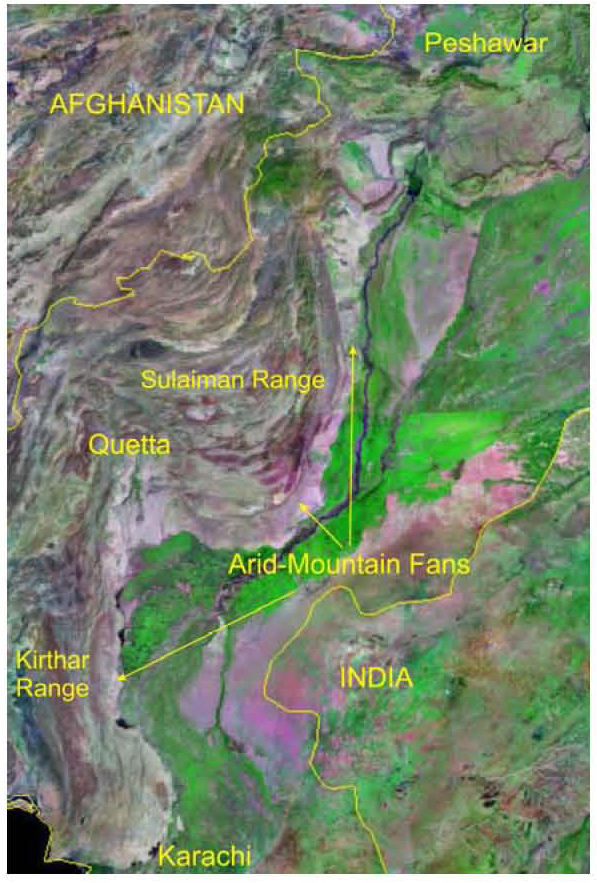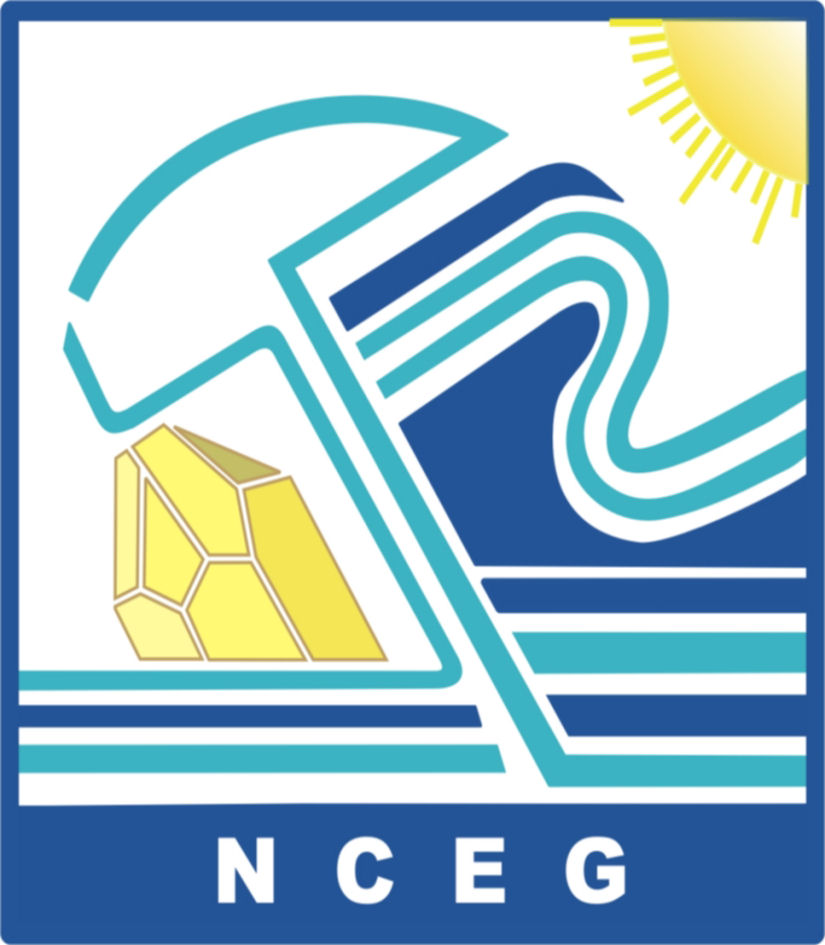A vast land covering 1/6th of the country’s area (over 200,000 Km2) along the mountain front region, stretched from FATA to Kirthar-Sulaiman Ranges, displays a desert landscape comprised of coalescing alluvial fans in semi-arid climatic setting. Being above topographic height of the Indus River, the region is exclusively dependent upon sporadic rainfall-induced network of ephemeral streams for irrigation. Yet, this is the only habitat for a vast majority of tribal communities. The dry climate with associated hydrological concerns, soil erosion, land degradation, flash floods and droughts has contributed to poverty, hunger and miseries of the nomadic habitants with little chances of survival without any other means of livelihood. Circumstances like these unfortunately, have created a huge gap between the have and have-nots, allowing exploitation of tribal communities at the hands of extremists.
This project seeks to reverse years of poor land-management practices, which over time have devastated the region’s natural environment. Besides engaging in the systematic destruction of their natural forest cover for limited, short-term economic gains, the tribal people of this belt compounded the problem by allowing uncontrolled grazing, which further damaged and aggravated the region’s already fragile eco-system. And, with little or no vegetative cover left to anchor the soil, this left their semi-arid region prey to the wide-spread ravages of sheet and gulley erosion where rainfall comes mainly in the form of short-lived, often violent torrential showers.
The torrents crisscrossing the region, as they rush down to the Indus River from the mountains bordering Afghanistan, have not only destroyed what little cropland was available, but have left a vast amounts of coarse debris. Thus, years of neglect and worse, the self-destruction of their environment, has deprived the tribal people the opportunity of utilizing their land for useful agricultural purposes, thereby denying them the benefits, which a peaceful and productive sedentary form of life offers.
The proposed policy workshop will lay the ground work for an extensive land-rehabilitation and labour-intensive public works programme benefitting large numbers of tribal people of FATA, Khyber-Pakhtunkhwa, Punjab and Balochistan regions. This meeting will deliberate upon launching a major land-rehabilitation programme, which has the goal of not only ‘repairing’ large areas of the Pakistan’s degraded landscape along the extensive mountain belt, but also converting it once again into a productive agricultural land.

RESOURCE PERSONS & PARICIPANTS
Leading scientists, engineers and planners, actively involved in land-reclamation and agricultural development of wastelands especially in semi-arid mountain-front environments in the country and abroad have been invited to not only present their case studies but to participate in group works to develop strategies for implementation of alabour-intensive public works programme on land rehabilitation. Since the project involves a wide array of challenges, we invite meteorologists, hydrologists, water-resource engineers, irrigation engineers, geologists, geomorphologists, soil-scientists, GIS/RS specialists, horticulturists, agriculturists, environmental scientists and social scientists to contribute to a comprehensive practical strategy through their specialized backgrounds.
WORKSHOP THEMES
• Mountain-Front Alluvial Fans, Pakistan: Geological and geomorphological aspects.
• Hill torrents and flash floods: history, frequency, intensity, distribution, hazards and possible remedies.
• Flood irrigation practices; historical background, layouts, structures, achievements, shortcomings and way forward.
• Irrigation engineering; channelization, diversion channels, sediment traps, reservoirs (dams), irrigation canals from Indus River.
• Soil erosion, degradation, reclamation, stabilization, fertility and productivity.
• Groundwater hydrology.
• Agriculture and afforestation
• Community participation: incentives and motivation
WORKSHOP FORMAT
The workshop format is a mix of case studies and work groups. Presentations from Pakistan and abroad, delivered by eminent scientists and engineers having years of background and practice in arid lands will make one component. Discussion sessions will comprise working groups whereby the scientists and engineers will focus on arid mountain fans in N.W. Frontier region of Pakistan, developing a practical work plan for addressing the issue of controlling hill torrents, entraining them for a sustainable irrigation, reducing the soil erosion, developing new soils and increasing soil fertility and productivity and finally rehabilitating this land to a viable agriculture output. Special emphasis will given to community participation to create a sense of ‘ownership and responsibility’ for the work undertaken thus helping create a better bonding with their environment.
Finally, the participants in the Workshop will have the opportunity to discuss the pros and cons, i.e. suitability of various “demonstration or pilot” sites offered by staff from the University of Peshawar, which could be used to conduct various follow-on work activities, including the most suitable type of administrative infrastructure needed to do the job. These discussions will determine the likely work activities involved, time framework needed and an estimate of the resources required.
VENUE
Pakistan Academy of Sciences,
3-Constitution Avenue,
G-5/2, Islamabad, Pakistan
Ph: 92 51 9215478 Fax: 92 51 9206770
DATES
November 15, 2010: Registration & Abstract
December 6-8, 2010: Workshop
Participants may register by sending brief biodata, Title/Abstract of Presentation to the Pakistan Convenor (masifk@upesh.edu.pk)
SUPPORT
Participants with relevant background/experience, especially those with accepted presentations from outside Islamabad will be provided boarding/lodging from December 5, 2010. Limited travel funds are also available.
ORGANIZATION
Patron
Professor Dr. Azmat Hayat Khan
Vice Chancellor,
University of Peshawar
Pakistan
Convener (International)
Dr. David Dichter
623 Lexington Ct.
Linwood, N.J. 08221, USA
Phone: +1 (609) 601 8635
Email: d_dichter@msn.com
Convener (Pakistan)
Dr. M. Asif Khan
National Centre of Excellence in Geology,
University of Peshawar, Pakistan
Phone: +92-91-9216767, 9219427-9
Fax: +92-91-9218183
Email: masifk@upesh.edu.pk


